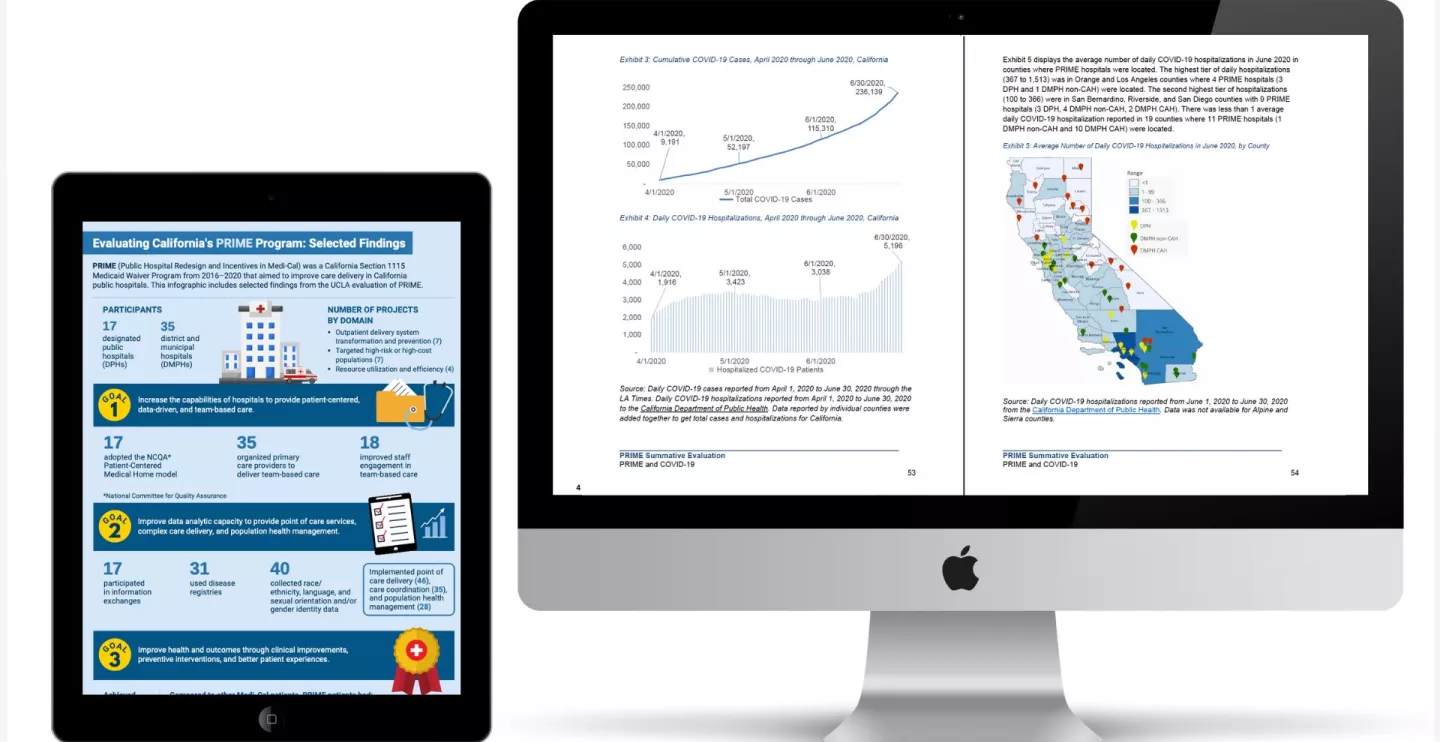New UCLA evaluation shows improved outcomes for Medi-Cal patients under a demonstration program
Decreased use of emergency department visits and hospitalizations and slower growth in estimated Medi-Cal payments found for patients of public hospitals compared with patients of other hospitals
Media Contact:
UCLA CHPR Communications Team
Researchers at the UCLA Center for Health Policy Research (CHPR) have released findings from the Final Summative Evaluation of California’s Public Hospital Redesign and Incentives in Medi-Cal (PRIME) Program.
The report, led by Nadereh Pourat, PhD, associate center director and director of the Health Economics and Evaluation Research (HEER) Program at UCLA CHPR, provides a final assessment of the five-year program’s impact on health outcomes, utilization of services, and Medi-Cal payments. Prior reports, such as the Interim Evaluation of PRIME report, described detailed information on the program’s implementation and hospital-reported performance metrics.
PRIME was implemented by 54 public hospitals in California, including 17 designated public hospitals (DPHs) and 35 district and municipal hospitals (DMPHs), to improve care delivery, cultural competence, patient health outcomes, and to move public hospitals towards value-based care.
The UCLA CHPR research team conducted the PRIME evaluation, along with the California Medicaid Section 1115 Waiver Whole Person Care (WPC) Program and other innovative Medi-Cal programs such as the Health Homes Program (HHP).
The report findings show that PRIME hospitals had:
- Reduced hospitalizations (2.33 fewer per 1,000 patients per year among DPHs) and emergency department visits (6.32 fewer among DPHs; 15.36 among DMPHs) for PRIME patients compared with patients of other providers.
- Reduced Medi-Cal payments per person per year ($836 among DMPH; $865 among DPHs).
- Used innovative approaches and modifications to implement PRIME projects, mitigating COVID-19 pandemic disruptions.
- Improved public hospitals’ ability to participate in managed care value-based payments.
"The findings of this evaluation highlight the importance of federal funding for initiating and promoting progress in quality improvement projects," Pourat said. "They can be used to inform federal and state Medicaid policies to promote better care, better health, and lower costs."
Read the Publications:
- Policy Research Report: Final Summative Evaluation of California’s Public Hospital Redesign and Incentives in Medi-Cal (PRIME) Program
- Infographic
About the UCLA Center for Health Policy Research
The UCLA Center for Health Policy Research (CHPR) is one of the nation’s leading health policy research centers and the premier source of health policy information for California. UCLA CHPR improves the public’s health through high quality, objective, and evidence-based research and data that informs effective policymaking. UCLA CHPR is the home of the California Health Interview Survey (CHIS) and is part of the UCLA Fielding School of Public Health.














